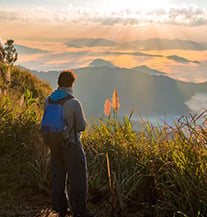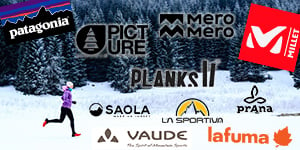Sign in
Contact
-
MenuBack
-
Our Sports
-
-
-
-
-
- Ski clothing
-
- Children's fleece
- Children's ski pants
- Men's fleeces
- Men's Softshell Jacket
- Women's fleeces
- Women's Softshell Jacket
-
-
-
-
-
-
-
- Cross-country ski clothing
-
- Men's fleeces
- Men's Softshell Jacket
- Ski touring gloves
- Ski touring socks
- Women's fleeces
- Women's Softshell Jacket
-
-
-
-
-
-
-
- Cross-country ski clothing
-
- Cross-country ski gloves
- Cross-country socks
- Men's lightweight down jacket
- Men's Softshell Jacket
- Women's lightweight down jacket
- Women's Softshell Jacket
-
-
-
-
-
-
-
- Snowboard clothing
-
- Men's Alpine ski jackets
- Men's alpine ski pants
- Men's fleeces
- Men's ski jacket
- Men's Softshell Jacket
- Women's Alpine ski jackets
- Women's alpine ski pants
- Women's fleeces
- Women's ski jacket
- Women's Softshell Jacket
-
-
-
-
-
-
-
-
- Mountaineering Clothing
-
- Climbing gloves
- Men's fleeces
- Men's Softshell Jacket
- Men's winter pants
- Women's fleeces
- Women's Softshell Jacket
- Women's winter pants
-
-
-
-
-
-
-
- Climbing clothes
-
- Climbing gloves
- Men's climbing pants
- Men's climbing T-shirts
- Men's Softshell Jacket
- Women's climbing pants
- Women's climbing T-shirts
- Women's Softshell Jacket
-
-
-
-
-
-
-
-
-
-
- Hiking clothes
-
- Hiking caps
- Hiking hats
- Hiking socks
- Men's hiking jackets
- Men's hiking pants
- Men's hiking T-shirts
- Men's Softshell Jacket
- Women's hiking jackets
- Women's hiking pants
- Women's hiking T-shirts
- Women's Softshell Jacket
-
-
-
-
-
-
- Trail shoe
-
-
-
- Trail clothing
-
- Men's tank tops
- Men's trail jackets
- Men's trail shorts
- Men's trail T-shirts
- Men's trail tights
- Men's windproof jackets
- Trail caps
- Trail socks
- Women's tank tops
- Women's trail jackets
- Women's trail shorts
- Women's trail T-shirts
- Women's trail tights
- Women's windproof jackets
-
-
-
-
-
-
-
- Running clothes
-
- Women's technical bra
- Running socks
- Trail caps
- Men's trail jackets
- Women's trail jackets
- Women's trail shorts
- Men's trail shorts
- Men's trail T-shirts
- Women's trail T-shirts
- Men's tank tops
- Men's windproof jackets
- Women's windproof jackets
-
-
-
-
-
-
-
- Bike clothing
-
- Bike cap
- Bike gloves
- Bike socks
-
-
-
-
-
-
-
- Mountain bike clothing
-
- Bike cap
- Bike gloves
- Bike socks
- Men's cycling jacket
- Men's cycling shorts
- Men's cycling shorts
- Women's cycling jacket
- Women's cycling shorts
- Women's cycling shorts
-
-
-
-
-
-
-
-
- Lifestyle clothing
-
- Lifestyle Caps
- Lifestyle Gloves
- Lifestyle socks
- Men's shirts
- Men's summer pants
- Women's summer pants
- Men's sweatshirts
- Women's sweatshirts
- Men's Lifestyle T-shirts
- Women's lifestyle T-shirts
- Men's winter jackets
- Women's winter jackets
-
-
-
-
Shoes
-
-
-
-
Snow shoes
- Après Ski
- Gaiters
- Shoe chains
- Winter boots
-
Snow shoes
-
- Ski boots
-
- Ski touring boots
-
-
Cross-country ski boots
- Classic
- Skating
-
Cross-country ski boots
-
- Snowboard Boots
-
- Canyoning shoes
-
-
-
-
Hiking shoes
- Flip-flops
- Hiking boots
- Hiking sandals
- Hiking shoe accessories
- Insoles for hiking boots
- Low hiking shoes
-
Hiking shoes
-
-
Mountaineering shoes
- Approach Shoes
- Mountain boots
- Mountaineering boots
-
Mountaineering shoes
-
- Trail shoe
-
-
Running shoe
- Running shoes
- Sandal recovery
- Shoe sole
-
Running shoe
-
-
-
-
Climbing shoes
- Lace-up climbing slipper
- Velcro climbing shoes
-
Climbing shoes
-
-
Bicycle shoes
- Boa cycling shoe
- Classic cycling shoe
- On shoes
-
Bicycle shoes
-
-
Mountain bike shoes
- Boa MTB shoe
- Classic MTB shoes
-
Mountain bike shoes
-
-
Lifestyle shoes
- Flip-flops
- Lifestyle shoes
- Sandals
- Slippers
- Sneakers
-
Lifestyle shoes
-
-
-
-
Clothing
-
-
-
Winter Clothing
-
Trail Clothing
-
-
-
Outdoor Clothing
-
-
-
Lifestyle Clothing
-
-
-
-
-
Winter Clothing
-
Trail Clothing
-
-
-
Outdoor Clothing
-
-
-
Lifestyle Clothing
-
-
-
-
-
Winter Clothing
-
-
-
Outdoor Clothing
-
-
-
Lifestyle Clothing
-
-
-
-
-
-
Brands
-
- Sale
- About us
- Blog
-
Eco-Friendly
-
1. Understanding camping tents
Light touring tents
Light touring tents are designed to be particularly portable. They are ideal for hikers who count every gram of their gear. These tents use ultra-light materials such as ripstop nylon and polyester, and aluminum or carbon fiber poles to minimize weight without compromising sturdiness.
Four-season tents
Designed to withstand the harshest conditions, four-season tents are ideal for high-altitude campsites where strong winds and snowfall are frequent. They feature thicker canvas, reinforced poles and a lower profile, helping them to withstand severe weather conditions. Choosing a four-season tent is essential for winter expeditions or high mountain ascents.
Dome and geodesic tents
Dome tents are appreciated for their ease of assembly and wind resistance. They offer a good compromise between weight and living space, which is crucial after a long day's trekking. Geodesic tents, with their intersecting poles, offer greater stability and are often the preferred choice for technical expeditions.
2. Factors to consider when buying a tent
Space and capacity
Space requirements will depend on the number of people using the tent and the equipment to be stored. For athletes carrying bulky equipment or wanting more comfort, it may be wise to choose a tent offering a little more space than is strictly necessary.
Weight and transportability
Weight is a crucial factor in the mountains. A lightweight tent makes long treks easier, but durability and protection against the elements are not to be neglected. It's important to find the right balance between weight and other features.
Weather resistance
In the mountains, weather conditions can change rapidly. A good camping tent should be able to withstand rain, wind, and potentially snow. Check features such as the waterproofness of the fabric, the quality of the sealed seams and the strength of the poles.
Ease of assembly
After an exhausting day, an easy-to-pitch tent is essential. Tents with color-coded poles and clear instructions can greatly simplify the process.
Ventilation
Good ventilation is crucial to avoid condensation inside the tent, which is particularly important in cold, damp environments. Look for tents with adjustable ventilation options to maintain optimum comfort.
3. Technological innovations in camping tents
Advanced materials such as Dyneema, which is extremely light and strong, are increasingly being used in the manufacture of tents. Breathable yet waterproof fabric technologies also enhance comfort and protection. Quick-fit systems, such as clip-on fasteners or pre-assembled poles, make installation and dismantling easy.
Choosing the perfect camping tent requires consideration of a multitude of factors, including the type of camping envisaged, expected weather conditions, and your own ability to carry the equipment. For mountain athletes, it's crucial to prioritize safety and comfort without compromising portability and durability. With the right criteria in mind, selecting the ideal tent will become a key step in your preparation for your outdoor adventures.





































